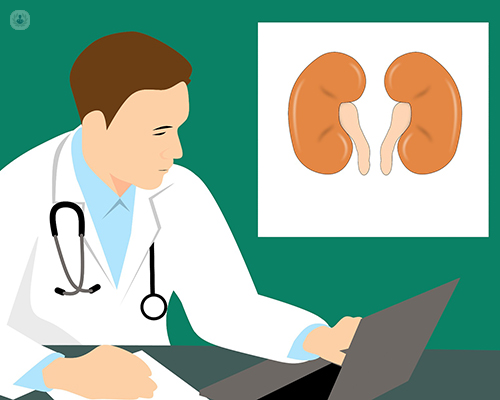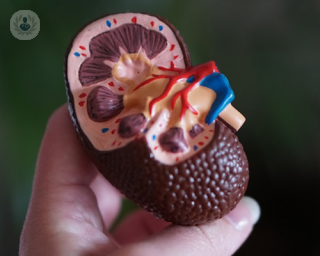Glomerulonephritis
What is glomerulonephritis?
Glomerulonephritis is a disease in which the minute renal units responsible for filtering, the glomeruli, are damaged, and become irritated and swollen (inflammation). As a result, kidney function is impaired.
Glomerulonephritis is described as acute when it develops suddenly, and chronic when it develops over many years.

Symptoms of glomerulonephritis
- Red or dark brown urine.
- Lower urine production.
- Greater effort required for breathing.
- Fatigue and hypertension.
- Oedema.
What are the causes of glomerulonephritis?
Sometimes, the exact cause of glomerulonephritis is not known. However, in many cases, it is due to a problem with the immune system. In the majority of cases, it is an autoimmune disease in which the body makes antibodies directed against a specific element of the renal tissue, harming the kidneys and leading to inflammation.
Can it be prevented?
In many cases, glomerulonephritis can be diagnosed via laboratory tests before symptoms and other signs appear. Although it cannot be detected with standard urinalysis, it can be detected early, when it is more amenable to treatment.
In general terms, renal diseases can be prevented by optimal hydration of the kidneys and urinary tracts, e.g. by ingesting sufficient liquids and not using tobacco.
What is the treatment?
The treatment varies according to the type of glomerulonephritis. Fortunately, in many cases, the disease resolves spontaneously. If not, doctors can do many things to help:
Acute glomerulonephritis:
- Treatment of oedema with diuretic drugs
- Treatment of high blood pressure
- If the cause is a bacterial infection, antibiotics are used.
Chronic glomerulonephritis:
- Treatment of high blood pressure.
- Control of body fluids.
- Low-protein diet.









